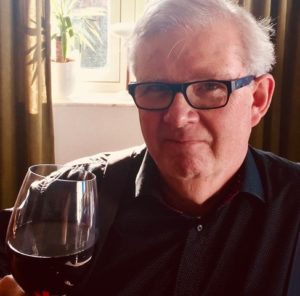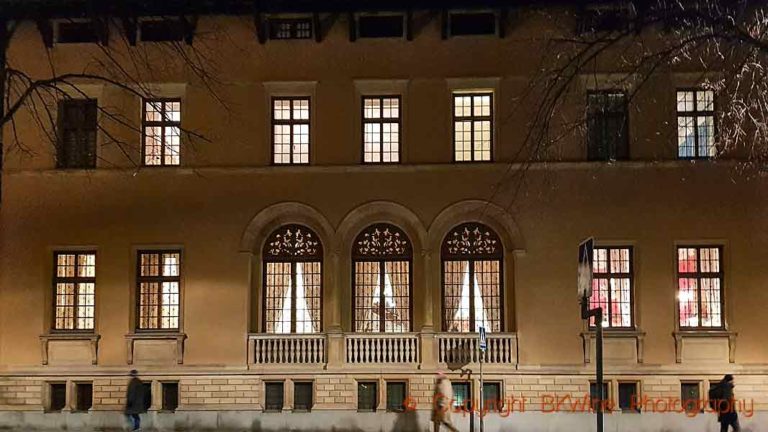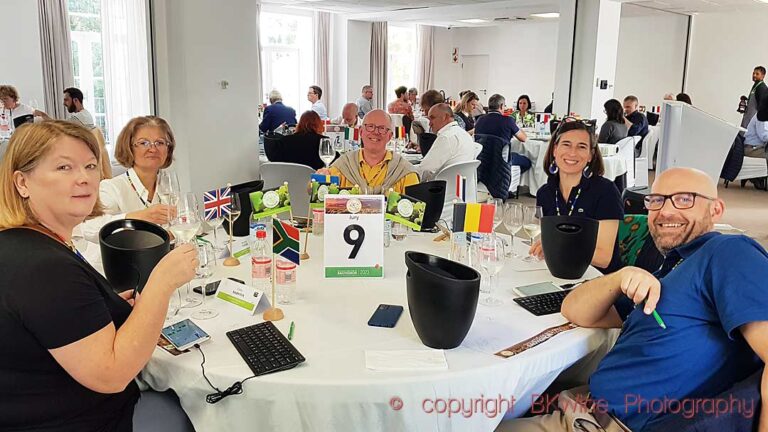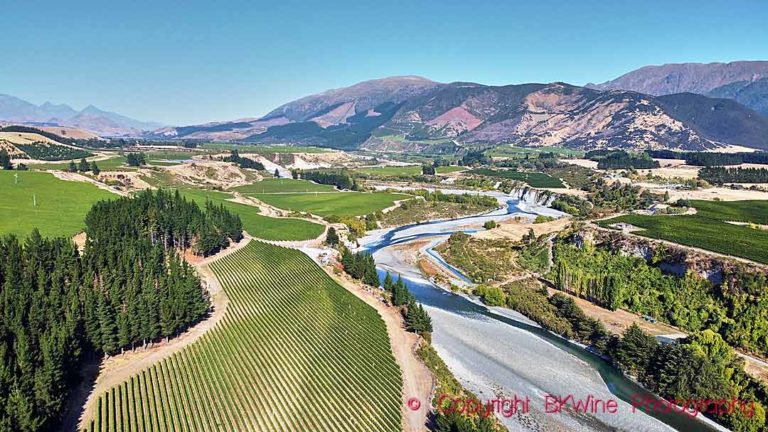Mundus Vini is one of the world’s most influential wine competitions. It has been running for 18 years and every year around 11,000 different wines participate in the competition. It must be acknowledged that I have always been a bit sceptical of bottles adorned with gold and silver medals, but after sitting in the jury as a judge during two intense days in June, I am prepared to rethink my opinion.
Now I know how much work is behind the medals and that only really good wines are rewarded.
The Mundus Vini tastings are organized by the German publisher Meininger, which publishes a number of trade journals for the beverage industry. Now, in collaboration with the German winegrowers’ organization Wines of Germany (Deutsche Weininstitut, DWI), the very first Mundus Vini Nordic, a Nordic edition of the major German competition, has taken place. The aim is simply to promote wine exports to Scandinavia, after the United States the biggest export market for German wines. Last year, imports of German wines increased in all Nordic countries, most in Denmark by 17.9%, more modestly, 4.7%, in Sweden.
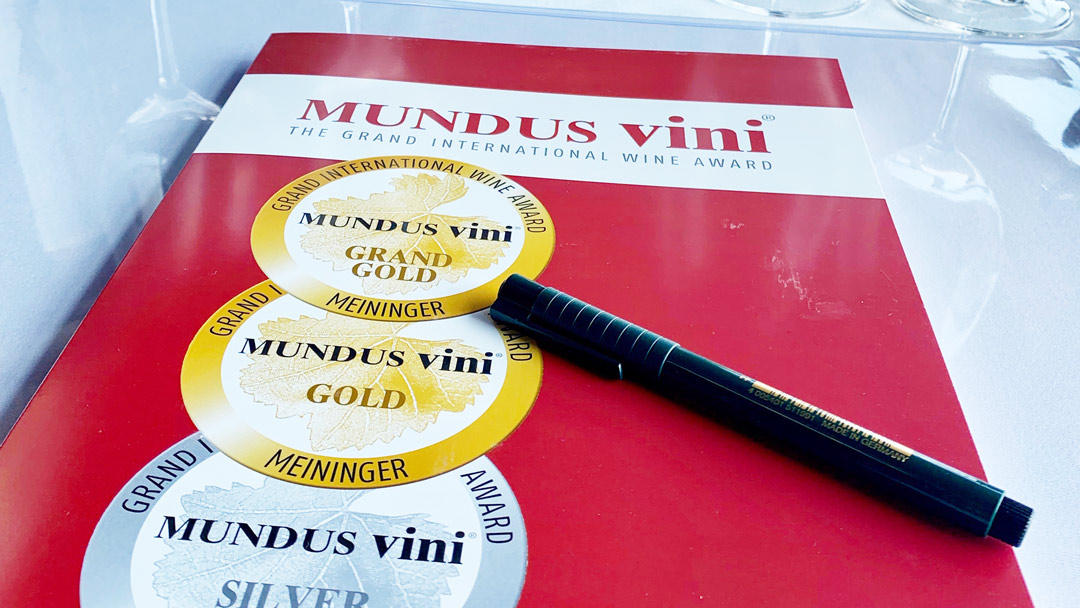
We were no less than 53 participants in the jury, which met at the Royal Theater’s Playhouse in Copenhagen. Each judges’ table had representatives from Norway, Denmark, Finland and Sweden. There were wine journalists, sommeliers, wine merchants, importers and key people from the Nordic alcohol monopolies. Over two days, 660 wines from 200 German wine producers were sampled. Of these, 100 wines were awarded gold and 164 silver.
The entries were divided into 11 categories and one winner from each was named “Best in Show”. The most common grape variety was, of course, riesling, but weissburgunder, grauburgunder, silvaner and sekt were also tasted, as well as spätburgunder and the increasingly popular lemberger (blaufränkisch).
Sitting as a judge in such a big competition is tough. Not many seconds can be spent on judging each wine and it is important to quickly reach consensus around the table. But it went surprisingly well! The jury work was both exciting and instructive and it was also an opportunity to meet a number of interesting wine profiles from different countries.
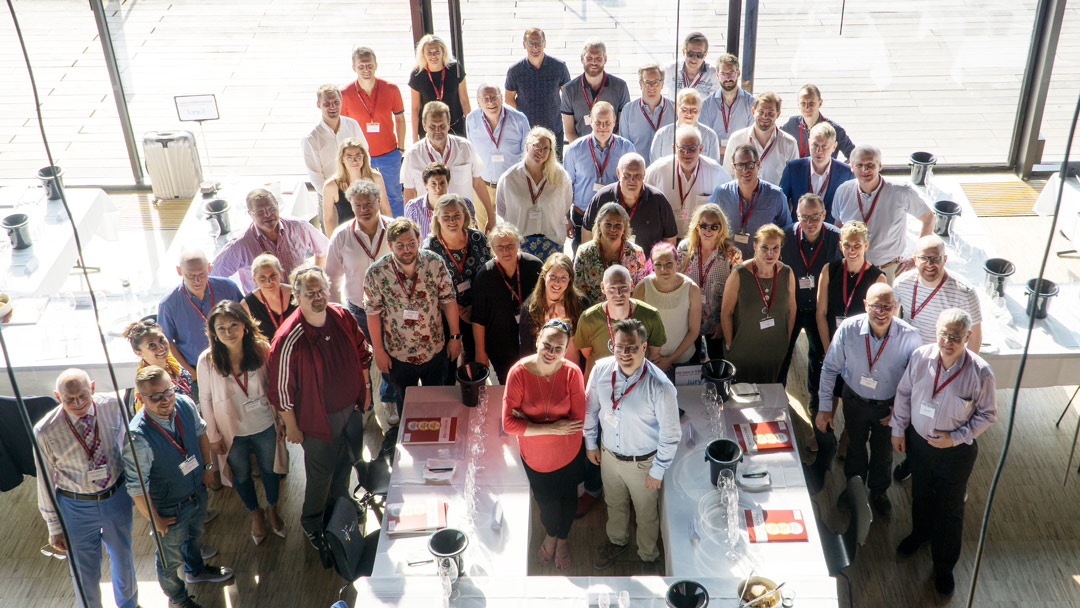
On September 10, there was a solemn award ceremony honouring the eleven winners, one from each category. This also took place in Copenhagen, very suitable in the famous wine shop Kjaer & Sommerfeldt (founded in 1875). We who were sitting in the jury were invited to this as well.
Following speeches by Anke Meyer, chargé d’affaires at the German Embassy, Christoph Meininger, CEO of Mundus Vini, and Monika Reule, CEO of DWI, it was time for the awards ceremony.
Here Carolin Klöckner was called on for help, this year’s wine queen in Germany. Appointing a “Weinkönigin” every year is an old and important tradition. Carolin is the seventieth Queen! Read more here about the German wine queen.
After the awards ceremony, we had the opportunity to taste all the winning wines and talk to the winemakers. The entire list is below, but here are some of my personal favourites:
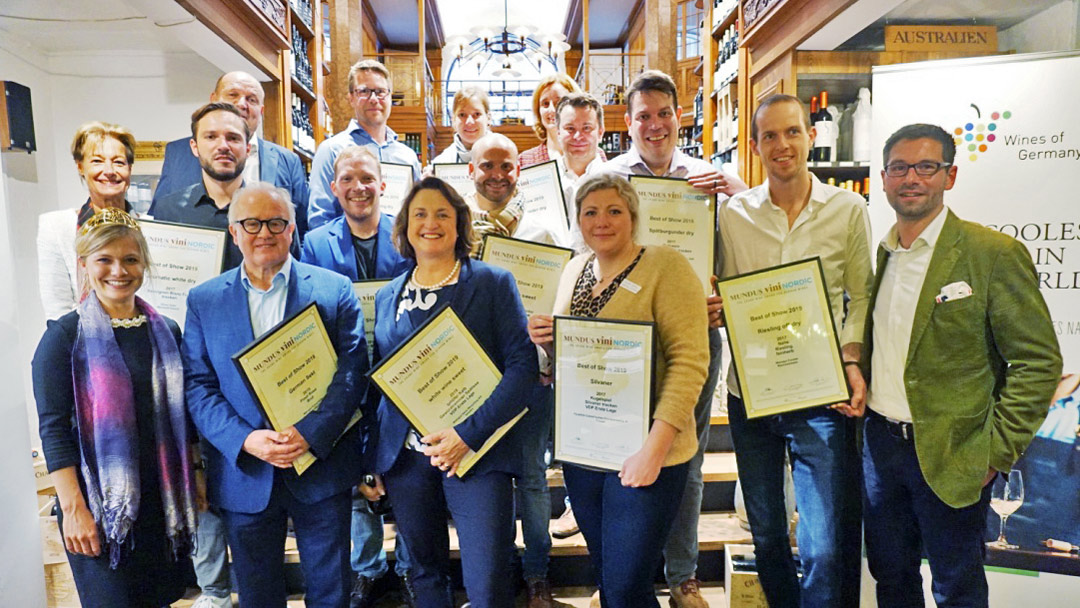
Weingut Hans Wirsching in Franken won the category sweet wines with a Gewürztraminer Spätlese from Iphöfer Kalb, while Fürstlich Castell received the award for best Silvaner.
The best dry riesling was the 2017 Weingut Meier Riesling Steinwerk Trocken from Pfalz. This wine, which I really liked, had fermented in tanks of granite!
Among semi-dry riesling, Weingut Forster in Nahe won while Oliver Zeter in Pfalz won the category “aromatic dry white” with a very exciting sauvignon blanc.
When it came to sweet (Süss) riesling, the award was taken by Dr H Thanisch, Erben Müller-Burggraef in Bernkastel-Kues, Mosel. This legendary winery is now run by the oenologist Maximilian Ferger since Barbara and Erik Rundquist stepped down. 2017 Riesling Cabinet Berncasteler Doctor Alte Reben became for me a “Stairway to Heaven”. Alte Reben, old vines, can usually mean anything between 50 and 100 years, but Maximilian says that in some cases it can be about 200 years, ie before the ravages of the vine louse. Even their dry 2017 GG from Berncasteler Doctor was amazing!
Finally, a few words about the red wines. The spätburgunder category was won by a Gutswein from Weingut Krebs. It didn’t particularly impress me. However, the 2016 Lemberger Großes Gewächs from Gernhalde in Würtemberg was really good. The producer Karl Haidle is represented at Systembolaget.
As usual, it was nice to discuss with the often young and ambitious winemakers. The objective of the competition was about finding wines that would suit the taste of Scandinavian consumers. After tasting over 100 wines at Mundus Vini Nordic, the impression was reinforced that there really is a great untapped potential for German wines in our countries.
Mundus Vini Nordic 2019 Category Winners
- Riesling trocken (dry): 2017 Riesling Steinwerk trocken, Weingut Meier, Weyher, Pfalz
- Riesling halbtrocken (off-dry): 2017 Riesling feinherb, Weingut Forster, Rümmelsheim, Nahe
- Riesling restsüß (naturally sweet): 2017 Berncasteler Doctor Riesling Kabinett, Weingut Witwe Dr. H. Thanisch Erben Müller-Burggraef KG, Bernkastel-Kues, Mosel
- Grauburgunder trocken (dry): 2018 STERN Grauer Burgunder vom Lösslehm, Weingut Stern, Hochstadt, Pfalz
- Weißburgunder trocken (dry): 2017 Eselpfad Weißer Burgunder trocken, Weingut Hofmann, Appenheim, Rheinhessen
- Silvaner trocken (dry): 2017 Kugelspiel Silvaner trocken VDP.ERSTE LAGE, Fürstlich Castell’sches Domänenamt e. K., Castell, Franken
- Aromatic white varieties dry: 2017 Sauvignon Blanc Fumé trocken, Oliver Zeter, Neustadt-Haardt, Pfalz
- White wines naturally sweet: 2018 Iphöfer Kalb Gewürztraminer Spätlese VDP.ERSTE LAGE, Hans Wirsching KG, Iphofen, Franken
- Spätburgunder trocken (dry): 2017 Gutswein Spätburgunder trocken, Weingut Harald und Jürgen Krebs GbR, Freinsheim, Pfalz
- Lemberger trocken (dry): 2016 Stettener Mönchberg Gehrnhalde Lemberger GG VDP.GROSSE LAGE, Weingut Karl Haidle KG, Kernen, Württemberg
- German Sekt (sparkling): 2015 Pinot Rosé Brut, Weingut Franz Keller, Vogtsburg-Oberbergen, Baden
Carl-Magnus Hedin used to work with dental products, then became winegrower, and now wine importer.


